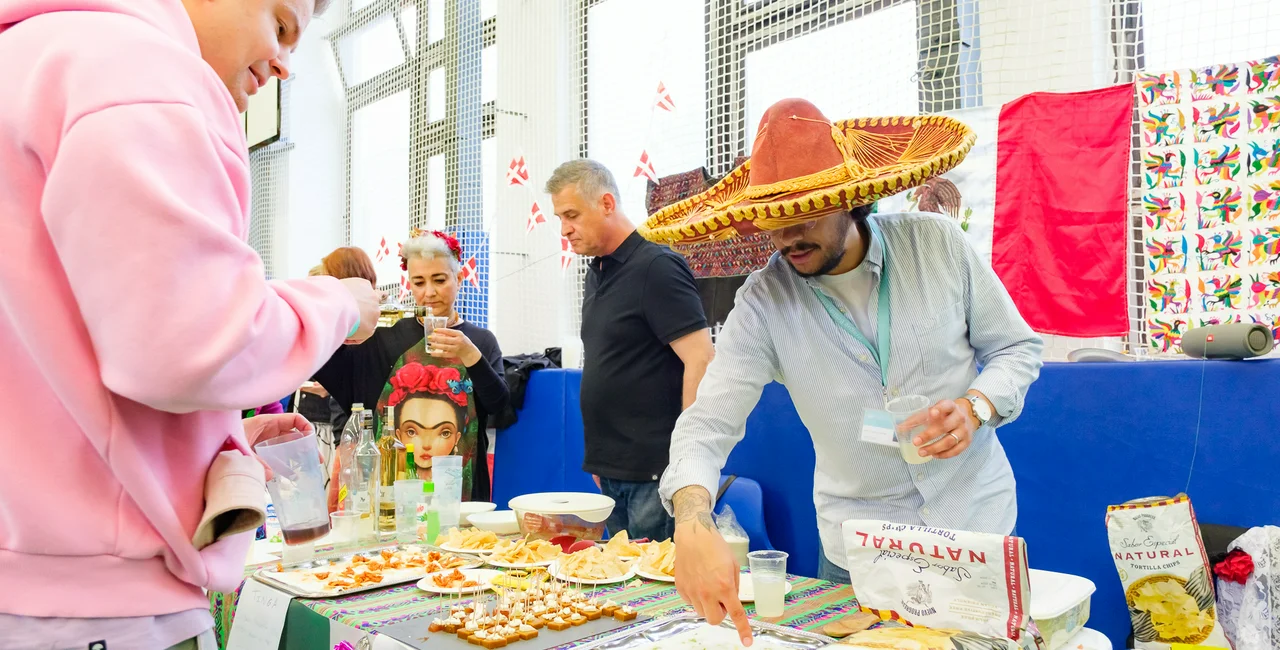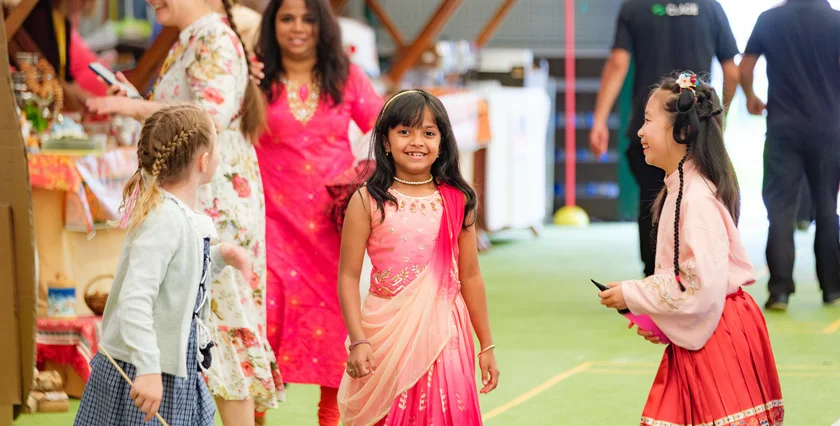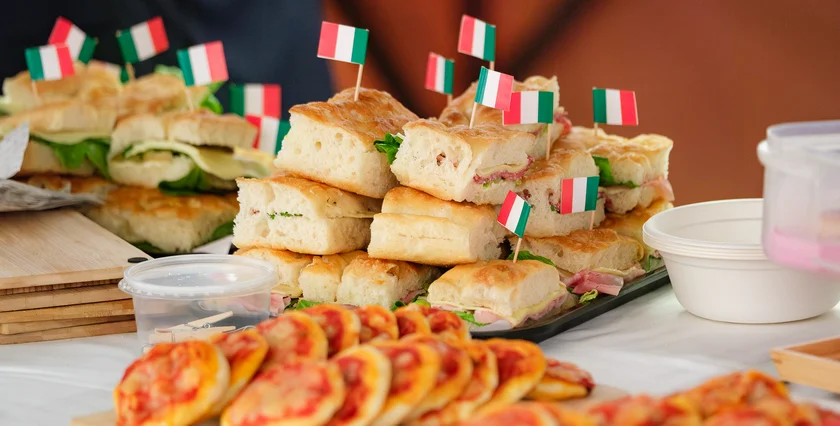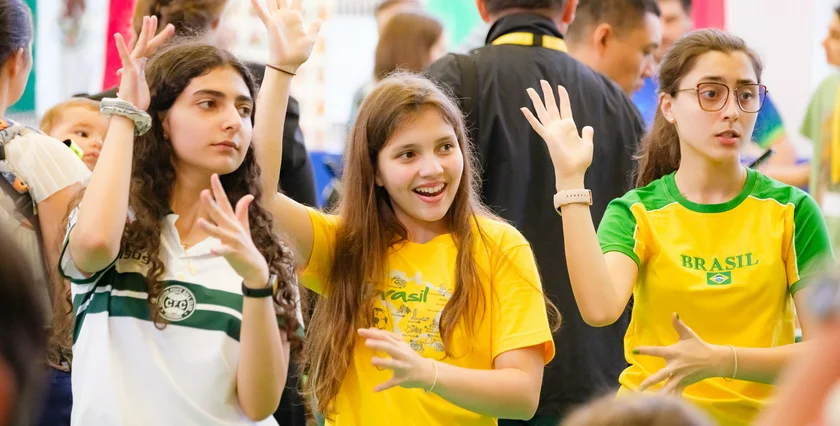Building bridges between cultures is key to leading a fulfilling international life, and when it comes to sharing and engaging with different cultures, nothing beats the magic of food.
At Prague British International School (PBIS), the powerful impact of learning side-by-side with pupils from across the world is amplified by an equally diverse community of parents who are actively involved in school life. Every summer, PBIS celebrates this remarkable diversity with an International Food Festival. It’s a feast for all the senses, as students, parents and teachers try out each other’s dishes and celebrate their own and each other’s cultures.
This year, an early summer downpour wasn’t enough to dampen high spirits at the PBIS food festival. Expats.cz took the chance to talk with staff and parents about how this rich cultural banquet reflects the PBIS approach to learning and development, in which children connect across cultures and make friends with peers from every corner of the world.
The language of food
The food festival is a remarkable demonstration of the diversity of the PBIS community. Spread across three halls, including a large, covered sports hall, dozens of stands steam with tempting delicacies from across the world – from Brazilian cakes to delectable Afghan curries and, closer to home, good old-fashioned Czech, Slovak and British classics.
For many children attending, traditional folk costumes from their home countries make a colorful change from the everyday school uniform. Parents and staff manning the stalls, meanwhile, are eager to show off the best that their national cuisines have to offer.
Petra and Szandra, two mothers of children at the school, from Slovenia and Hungary, met at a previous international festival. They describe how the diverse atmosphere at PBIS fosters an open-minded, open-hearted approach to education and life.
“Our children have friends from everywhere,” Petra explains. “Growing up in this environment, they don’t think about where people come from. For my kids, Slovenian is the language we speak at home, but other than making our food stand here every year, they don’t seek out friends from their home country. I just took a photo of my daughter with her two best friends; one is Chinese, and the other is Indian.”
Isla Gillespie, an early-years teacher, describes how the food festival manifests PBIS’ approach to diversity.
Our international environment quickens how children learn about being a global citizen...They appreciate the world more while becoming bilingual or even trilingual. That’s the difference which an international education brings.”
“Although we’re a British school, we value everybody’s culture, embracing the fact that we come together as one. It’s such a lovely atmosphere, with the parents involved and enjoying the event along with the staff and children. This is what schools should be about: children at the center and everyone around them coming together.”
“The more languages you speak, the more of a person you are”
Walking from stall to stall at the PBIS food festival drives home one particularly remarkable aspect of international schooling. Languages from across the world intermingle, while English runs through them all as the common thread binding cultures and communities together.
A majority of PBIS teachers are British, and rapid development of English language skills are a fundamental part of the learning experience.
Victoria Smith, the primary school maths lead hailing from Wales, describes PBIS children’s precocious communication skills. “We encourage children to speak English together on the playground, as playing using a language is the best way to learn. During lessons, they follow the British curriculum in the same way as kids in the UK. We also see children who don’t yet have a consistent language all playing together. It’s beautiful to see.”
For Szandra, the pace of language progress is astonishing. “My kids were very little when we first moved here and they didn’t speak any English. We were assured that even though they didn’t speak English at all, by the end of the year, they would be able to speak, write and read. I couldn’t believe it! Sure enough, by the end of that year, my son was speaking quite fluently while also writing and reading.”
Celebrating every child and every culture
The international food festival demonstrates, in culinary form, a focus on children’s individuality that’s core to the PBIS experience. This focus, according to Petra, brought about the lightbulb moment which led her to choose PBIS for her children when first visiting the school.
“We met the head of early years. Normally in such meetings, schools talk about themselves; the solutions they have, and what they can offer. Here, the first questions were: ‘How are your children? What are they like? How do you think they would feel here?’ The teacher was genuinely interested in our kids and how they would fit in at the school.”
“We sat together for five minutes, and I said to my husband: This is the place!”
Once their kids are studying at the school, parents become actively involved in school life through a Parents’ Association which supports fun extracurricular events throughout the year. According to Isla, parents are “non-stop” involved through an “open-door policy.”
Smiles on the faces of children, parents and staff at the school’s food festival are the best possible testament to this open, community-based approach. Joined together by a shared language and curriculum, while celebrating each other’s differences, children at PBIS gain the strongest possible foundation for success and happiness in international life.












 Reading time: 4 minutes
Reading time: 4 minutes 























